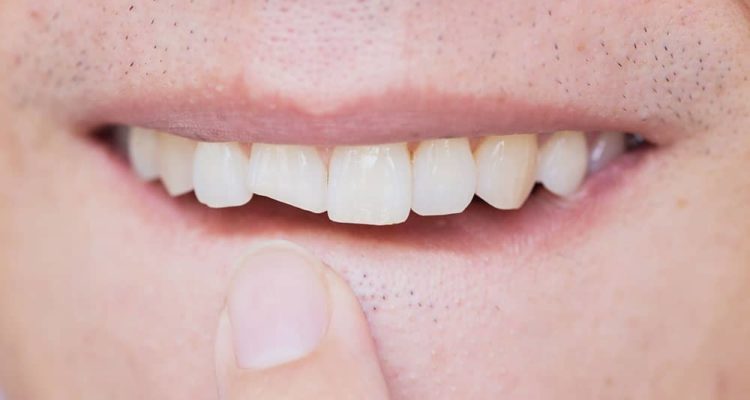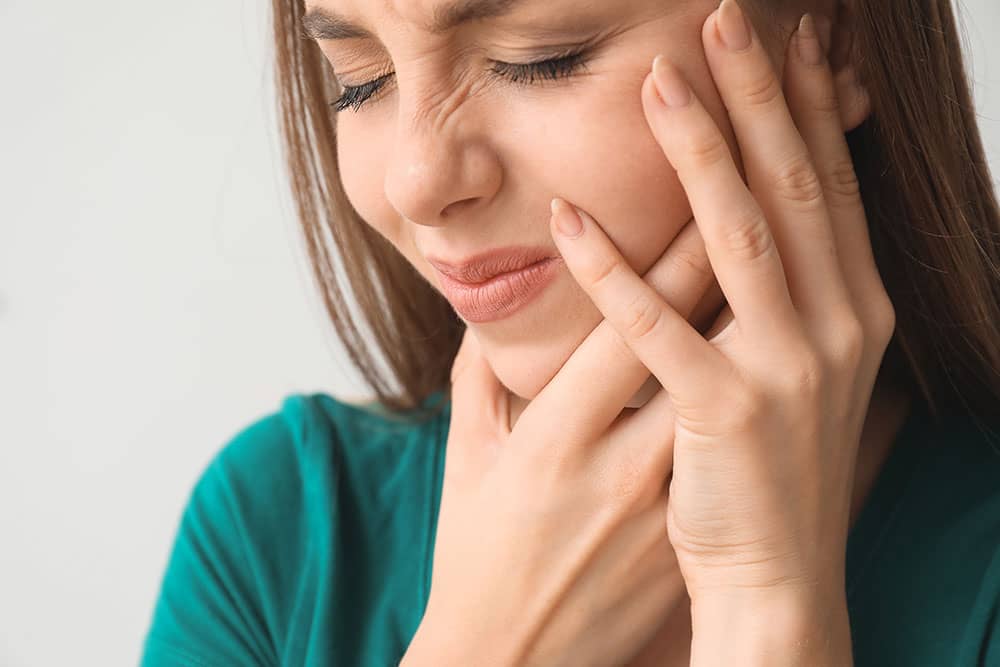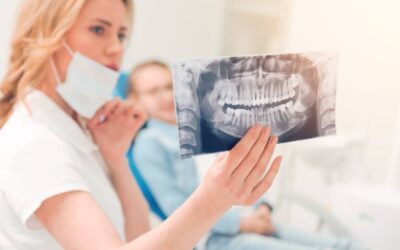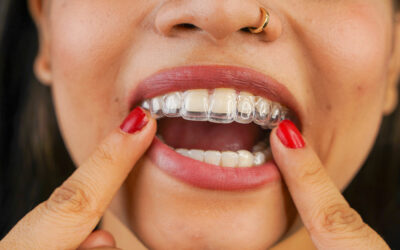Teeth are extremely strong, but they undergo stresses and strains that can lead to breaking, cracking, or chipping. Here, we will look at how to recognise a cracked or chipped tooth, how to manage it at home until you can see a dentist, and why it is imperative to get it professionally evaluated.
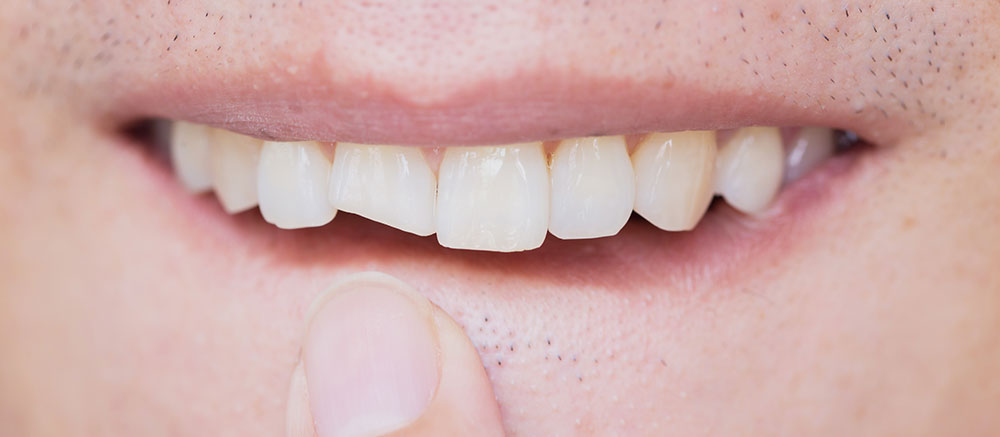
What Causes a Tooth to Chip or Crack?
The most common causes of a chipped or cracked tooth include:
- Eating hard foods such as nuts or hard candy
- Chewing on ice cubes
- Chewing on non-food objects such as pens or fingernails
- Injury to the mouth
- Pressure from teeth grinding
- Not wearing a mouthguard during sporting events
- Using your teeth to open things
Tongue or mouth piercings - Untreated cavities (cavities weaken the teeth, making them more susceptible to damage such as cracks or breaks)
- Age (individuals over the age of 50 are more likely to experience a cracked tooth)
What Are the Types of Teeth Cracks?
Cracks in teeth can appear as:
- Craze lines – These are tiny cracks in the enamel that do not cause pain and do not require treatment.
- Fractured cusp – This crack typically occurs in a dental filling and does not result in much pain as it does not affect the tooth’s pulp (the soft centre containing nerves and blood vessels).
- Cracks that extend into the gum line – A vertical crack that does not extend to the gum line is usually fixable. However, a crack extended into the gum line may require a tooth extraction. Prompt treatment is key.
- Split tooth – This extensive type of crack travels from the surface to beneath the gum line. Prompt treatment is required.
- Vertical root fracture – This type of crack starts below the gum line and goes upward. It does not produce too many symptoms unless infection occurs. However, the tooth will need to be extracted.
What Are the Symptoms of a Cracked or Chipped Tooth?
Although not every cracked tooth will lead to symptoms, common ones include:
- Pain during chewing or biting, especially upon releasing the bite
- Pain that comes and goes
- Swelling of the gum area around the affected tooth
- Sensitivity to cold, sweetness, or heat
What Are the Possible Complications of a Chipped or Cracked Tooth?
If you chip a tooth, it is unlikely to cause immediate pain, especially if the chip is small. A cracked tooth may not feel bothersome unless your tooth’s nerves are exposed and you eat something too hot or too cold. The longer a cracked tooth is left the higher the chance that the crack will propagate further and reach the nerve, resulting in the need for a root canal treatment or extraction.
However, even if you do not feel any pain, it is still important to get in touch with your dentist immediately. A chipped or cracked tooth left unchecked can lead to complications such as:
- A cut tongue – A jagged or sharp edge from a chipped tooth may cut your tongue or cheeks.
- Pressure sensitivity – A chipped or cracked tooth may be more susceptible to pain and sensitivity and may be more likely to break, even under slight pressure.
- Temperature sensitivity – A crack or chip in a tooth may lead to exposed nerves. These nerves are extremely sensitive and may cause severe, shooting pain when you eat or drink anything too cold or too hot.
- Infection – If your tooth’s inner structure is exposed due to a chip or crack, it becomes more vulnerable to infection. If the innermost part of the tooth is exposed, bacteria can invade and form a tooth abscess. This can lead to symptoms such as fever, swollen glands in the neck, pain, swollen gums, and more.
What Should You Do If You Have a Cracked or Chipped Tooth?
As you can see, although a chipped or cracked tooth may not seem like a big deal, it is important not to ignore it. Left untreated, cracked or chipped teeth can lead to complications and severe pain.
Fortunately, a variety of treatment options are available and include:
- Fillings
- Veneers
- Bonding
- Dental Crowns
- Root canal treatments
What Should You Do If you Break or Chip a Tooth?
If you fracture or break a tooth, follow these steps immediately:
- Remove any pieces of tooth to avoid swallowing them
- Rinse your mouth with warm water
- Use gauze to apply pressure to any bleeding areas
- Apply an icepack to the outside of your cheek over any swollen areas
- Cover any major cracks with temporary dental cement (if you have access to it)
- Use the other side of your mouth for chewing, if possible
- Use an over-the-counter pain reliever if needed, unless advised otherwise
- Cover any broken teeth with saline solution, saliva, or milk
- Do not brush the area, but continue brushing and flossing any unaffected teeth to help keep bacteria under control
- Avoid sugar as it can worsen sensitivity
- Avoid foods that are very cold or very hot
- Contact your dentist immediately for advice and to set up an appointment
We Are Open for Emergency Services
If you chip, break or crack a tooth, it is crucial to contact your dentist immediately. We are open for emergency services and are here to advise you on all your dental needs.
If you chip or crack a tooth, please contact us immediately. We would be happy to discuss home care and remedies and set up an emergency dental visit to rule out any complications and prevent infection.


